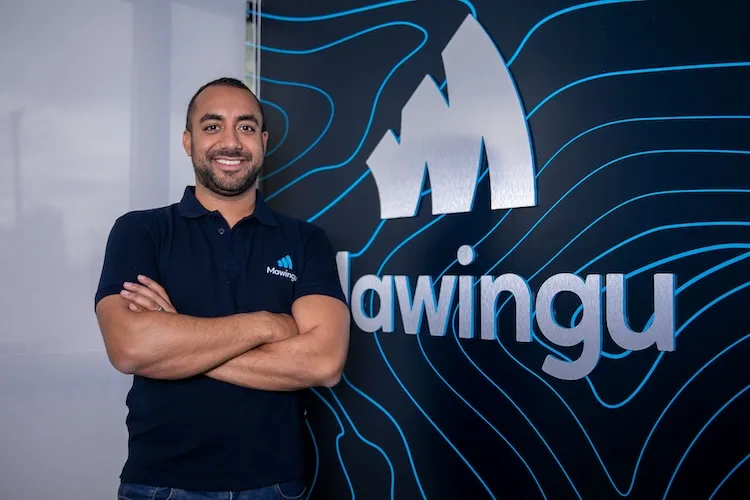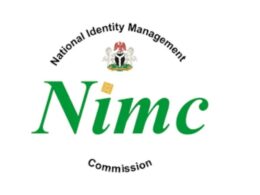In a country where the hustle is real but the paperwork is daunting, the Small and Medium Enterprises Development Agency of Nigeria (SMEDAN) has just thrown a lifeline to a quarter-million entrepreneurs. The agency’s new partnership with the Corporate Affairs Commission (CAC) to provide free business registration for 250,000 MSMEs isn’t just another government program—it could be the catalyst that finally bridges the gap between Nigeria’s thriving informal economy and the formal business sector.
The Hidden Cost of Being Unofficial
Ask any Nigerian entrepreneur about their biggest challenges, and you’ll hear familiar refrains: access to capital, infrastructure deficits, multiple taxation. But there’s an often-overlooked barrier that sits at the foundation of all these problems: the simple matter of being officially registered.
For years, business registration fees have been a silent gatekeeper, keeping countless small businesses locked in the informal sector. While the costs may seem modest to established businesses, for a mama selling provisions in Mushin, a tech developer building apps from a one-room apartment in Port Harcourt, or a fashion designer operating from their bedroom in Enugu, registration fees represent a significant hurdle—one more expense in a long line of expenses when you’re bootstrapping your way to success.
The result? According to various estimates, Nigeria’s informal economy accounts for anywhere between 50-65% of GDP. That’s trillions of naira in economic activity happening in the shadows, disconnected from government support systems, financial infrastructure, and legal protections. These businesses exist, they thrive, they employ people—but officially, they’re invisible.
Why Formalization Matters More Than You Think
SMEDAN’s initiative isn’t just about paperwork. It’s about unlocking doors that have remained firmly shut for millions of entrepreneurs.
Consider the loan application process at any Nigerian bank. The first question after “What’s your business about?” is invariably “What’s your CAC registration number?” Without it, you’re essentially asking the bank to trust you with money based on nothing but your word and perhaps a ledger scribbled in a notebook. In an era where even microfinance institutions demand documentation, informal businesses are left to rely on personal savings, family contributions, or high-interest loans from informal lenders.
Then there’s the matter of credibility. In Nigeria’s increasingly competitive business landscape, a CAC certificate isn’t just a legal requirement—it’s a signal of legitimacy. It tells potential clients, partners, and investors that you’re serious about your business. It opens doors to government contracts, corporate partnerships, and international opportunities that simply aren’t available to unregistered entities.
Beyond economics, there’s the question of protection. When your business isn’t registered, your business name isn’t protected. Your ideas aren’t protected. If disputes arise with partners or customers, your legal standing is murky at best. You exist in a gray zone where entrepreneurial dreams can be derailed by a single legal challenge.
A Policy That Actually Makes Sense
What makes this SMEDAN-CAC partnership particularly noteworthy is its pragmatic approach to a persistent problem. Rather than launching another loan scheme that requires businesses to already be registered, or another training program that teaches people how to formalize businesses they can’t afford to register, this initiative tackles the barrier head-on.
The timing is also significant. Nigeria is in the midst of an entrepreneurial renaissance, driven largely by young people who are building businesses across tech, agriculture, fashion, entertainment, and services. These aren’t your grandfather’s MSMEs—they’re digitally-savvy, globally-aware enterprises that could compete on any stage if given the right support structure. By offering free registration for 250,000 businesses, SMEDAN is essentially saying: “We see you, we believe in you, and we’re removing one obstacle from your path.”
The online portal approach (portal.smedan.gov.ng) is particularly smart. It acknowledges that today’s entrepreneurs expect digital solutions, not bureaucratic pilgrimages to government offices. The streamlined five-step process—visit the portal, sign up, indicate you don’t have a CAC number, submit details, and wait to be contacted—is refreshingly straightforward in a country often criticized for complex government procedures.
The Bigger Picture: Data, Development, and Direction
Beyond the immediate benefits to individual businesses, this mass formalization effort could provide something Nigeria desperately needs: reliable data on its MSME sector.
How do you craft effective policies for businesses you can’t count? How do you allocate resources when you don’t know where the gaps are? How do you measure the impact of interventions when your target population is largely invisible in official statistics? By bringing 250,000 businesses into the formal sector, SMEDAN isn’t just helping entrepreneurs—it’s building a knowledge base that could inform better policymaking for years to come.
This data could reveal patterns about which sectors are growing, which regions are entrepreneurial hotspots, what types of businesses are being started by young people versus older entrepreneurs, and where targeted support could have the most impact. It’s the kind of granular information that separates effective policy from well-intentioned guesswork.
The Challenges Ahead
Of course, no government initiative is without potential pitfalls. The success of this program will depend heavily on execution.
First, there’s the question of awareness. How many of the entrepreneurs who could benefit from this program will actually hear about it? In a country where many small business owners aren’t active on social media and may not follow government announcements, ensuring that information reaches market women, rural entrepreneurs, and operators in Nigeria’s many underserved communities will be crucial.
Second, there’s the digital divide. While an online portal is convenient for tech-savvy entrepreneurs, it could be a barrier for older business owners or those in areas with limited internet access. SMEDAN will need to ensure that alternative registration pathways exist for those who can’t easily navigate the digital process.
Third, there’s the question of sustainability. What happens after the first 250,000 registrations? Will this be a one-time initiative, or the beginning of a permanent shift in how Nigeria approaches MSME formalization? And critically, will the government follow through on the implicit promise that registration is just the first step—that formal businesses will actually receive the support, access, and protection that formalization is supposed to provide?
What Businesses Should Do Now
For entrepreneurs who have been operating informally, this is a rare opportunity that shouldn’t be missed. The process is simple enough: visit portal.smedan.gov.ng, create an account, and follow the prompts. When asked if you have a CAC number, select “No,” submit your business information, and wait for contact regarding the next steps.
But business owners should approach this with realistic expectations. Registration is a beginning, not an ending. It opens doors, but you still have to walk through them. It provides protection, but you still have to build a viable business. It signals credibility, but you still have to deliver value to customers.
Think of this free registration as the government saying: “Here’s your seat at the table.” What you do once you’re seated is entirely up to you.
A Test Case for Nigerian Governance
Ultimately, this SMEDAN-CAC partnership will be remembered not just for how many businesses it registers, but for what those registered businesses go on to achieve. If this initiative is coupled with genuine support—improved access to finance, simplified tax processes, better infrastructure, and protective business environments—it could mark a turning point in Nigeria’s MSME sector.
If, however, it becomes just another case of “you’re registered, now figure it out yourself,” it will join the long list of well-meaning government programs that failed to translate initial promise into lasting impact.
The 250,000 entrepreneurs who take advantage of this offer deserve more than a certificate. They deserve an ecosystem that rewards formalization with tangible benefits. They deserve financial institutions that see their CAC numbers as the beginning of a conversation, not the end. They deserve a regulatory environment that protects them without strangling them in red tape.
SMEDAN has opened the door. Now it’s up to the entire Nigerian system—government agencies, banks, corporate partners, and support organizations—to ensure that walking through that door leads somewhere worth going.
For now, though, if you’re running a business without registration, the message is clear: here’s your chance. Take it.
To apply for free business registration, visit portal.smedan.gov.ng. The program is targeting 250,000 MSMEs nationwide on a first-come, first-served basis.
About the Program:
- Who: SMEDAN in partnership with the Corporate Affairs Commission (CAC)
- What: Free business registration (Certificate of Incorporation)
- How Many: 250,000 MSMEs nationwide
- How to Apply: Visit portal.smedan.gov.ng and follow the five-step registration process
- Eligibility: Small business owners without existing CAC registration
This is a developing story. TechMoonshot will continue to monitor the program’s rollout and impact on Nigeria’s entrepreneurial ecosystem.












